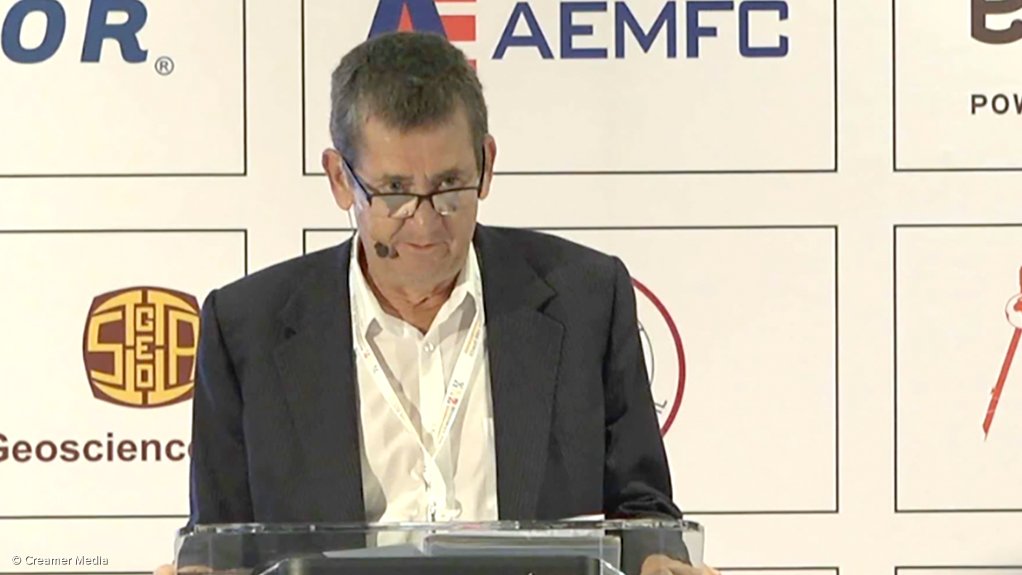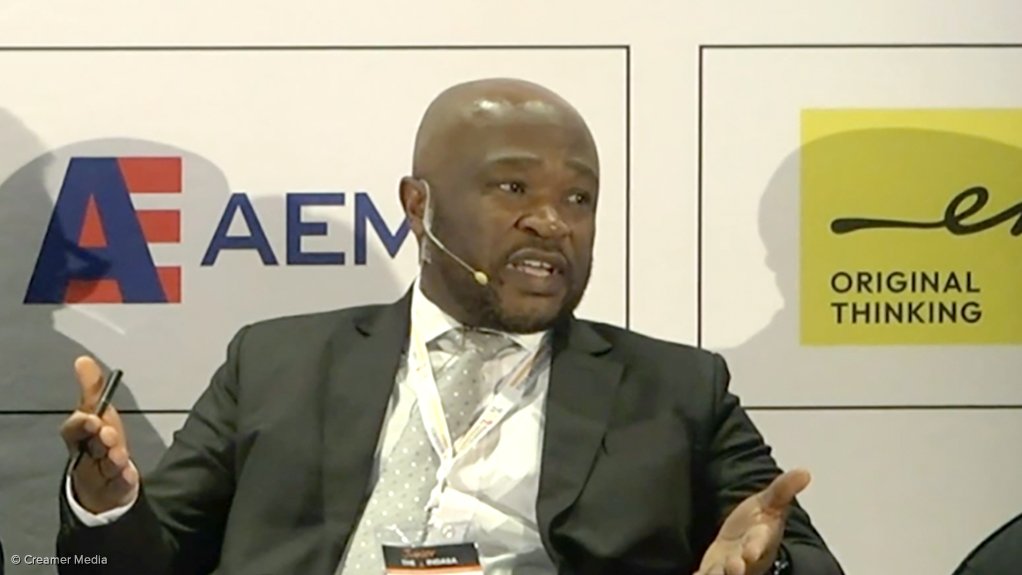JOHANNESBURG (miningweekly.com) – South Africa needs to see far more harnessing of the capital of the private sector and needs to make sure that government and private sector work together to grow the economy and create jobs, Minerals Council South Africa CEO Mzila Mthenjane emphasised during the first day of the Junior Indaba in Johannesburg on Tuesday.
Drawing attention to South Africa’s 40% unemployment rate, Mthenjane made the point that South Africa’s mining industry has the capacity to play a huge role in alleviating joblessness by providing the skills needed for where mining is heading and not where it is right now.
"Current mines are saturated, but I’m talking about future mines. The very junior miners that we’re talking about today are going to need different skills. The mining industry of the past embarked on a very particular social design to make it succeed – low skills and no skills. But going forward, we now have the opportunity of a different social design, and for mining to play a role in taking South Africa forward," Mthenjane added at the event chaired by mining luminary Bernard Swanepoel. (Also watch attached Creamer Media video.)
Also taking part in the panel discussion covered by Mining Weekly were ENS head of natural Resources and environment practice Ntsiki Adonisi, who moderated, Department of Mineral Resources and Energy (DMRE) director-general Jacob Mbele, Council for Geoscience CEO Mosa Mabuza, and NSDV director Lili Nupen.
“We need to make sure that government and private sector work together, as we’ve seen demonstrated in other areas. We’ve got to harness the power of the private sector, not only in terms of skills and capability, but also in terms of capital,” Mthenjane highlighted in describing as “interesting” the decision of the DMPR to launch both the Critical Minerals Strategy and the draft Mineral Resources Development Bill on the same day.
“One of the things I constantly look for when a Minister speaks is how are they aligning their departmental function to the apex priority of economic growth and job creation. So far, not very many Ministers have done that, in my view. I've only heard Minister Kgosientsho Ramokgopa do so, and I think we're missing the opportunity from the DMPR with this draft Mineral Resources Development Bill to be proactive so that we’re all working in one direction, as government and private sector. Hopefully it will change.”
Mthenjane described as "very high level" the two engagements that Minerals Council had been afforded prior to the publication of the new draft Bill, but noted that the council's inputs were not apparent and that no access had been given to the new draft Bill's underlying wording and how it was being amended.
As an example, Mthenjane pointed to the oft-repeated public comments by Minister Gwede Mantashe that prospecting companies were excluded from the same empowerment requirements for holders of mining rights.
“We raised this point over and over in our engagements with the department, that the amendments must specifically exclude prospecting companies from empowerment requirements. Exploration is the highest risk part of the mineral value chain and empowerment requirements imposed an unnecessary burden on prospectors who must sink every rand into drilling and data interpretation. Yet in this draft Bill, none of that is included,” the Minerals Council CEO pointed out, while committing to continue to review the Bill and to further engage the department to co-create a regulatory environment that will attract and support investment in exploration, mine development and the sustainability of existing mines, to unlock the potential of South Africa’s mineral resources for economic growth and job creation.
In an update on the introduction of the absolutely essential but extremely long-awaited South African cadastral system, DMPR deputy director general Tseliso Maqubela disclosed that the department had once again found itself at risk of repeating what had taken place with the introduction of the troublesome prior mining licensing system on 1 October 2013, which is now a business school case study on how not to roll out a project owing to its collapse soon after being launched.
On the way now is avoidance of introducing the new cadastre all at once nationally. Instead the new licensing system is going to be implemented regionally. “There won’t be one roll out nationwide,” Maqubela revealed.
“We’ve decided that we’ll start with the Western Cape. We’re still targeting completion in June 2025, as we had committed,” said Maqubela on the grounds that the Western Cape is a manageable jurisdiction with the highest number of operational mines, no backlog and a limited number of outstanding appeals.
“So, we’ll be able to test the efficacy of the system using that jurisdiction, which will soon be followed by Eastern Cape, and then all the other regions will follow after that.
“We know that there are regions with complexity that we're going to have to deal with, and we don't want any comebacks, so currently we're doing data migration, particularly for the region where we're going to start validation of that data, making sure that it is audited.
“Come the 1st of July, you won't be able to use Samrad to apply in the Western Cape, you will have to apply using the new cadastral system.
“One key feature is that we've introduced what is called a grid, and when you click on the grid and you say, I want to apply here, it will either give you a red that means you can't apply there, or it will give you a yellow to say that you need to have some conversations with people because you may be encroaching, and then the green will allow you to submit your application.
“The size of the of the grid is going to be a hectare, so you can expand the grid as much as you want, so what I can say is that we’re on track to deliver a robust, transparent and efficient cadastral system.
“We are resolving challenges as they emerge and when we launch, we’d like to get feedback so that we can make the necessary adjustments,” Maqubela added.
The grid framework replaces the long-standing farm-boundary framework.
In a video played to provide an overview of what was described as the new South Africa mining licensing system, logging in came with a personal dashboard, and the steps involved in the application process were indicated at the top of what was described as the application page.
EMAIL THIS ARTICLE SAVE THIS ARTICLE ARTICLE ENQUIRY FEEDBACK
To subscribe email subscriptions@creamermedia.co.za or click here
To advertise email advertising@creamermedia.co.za or click here














